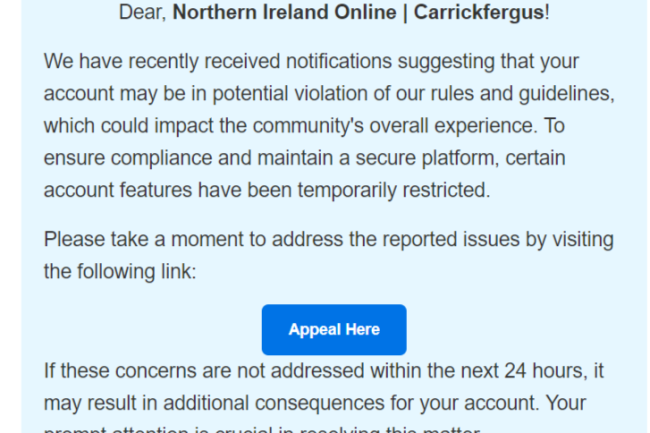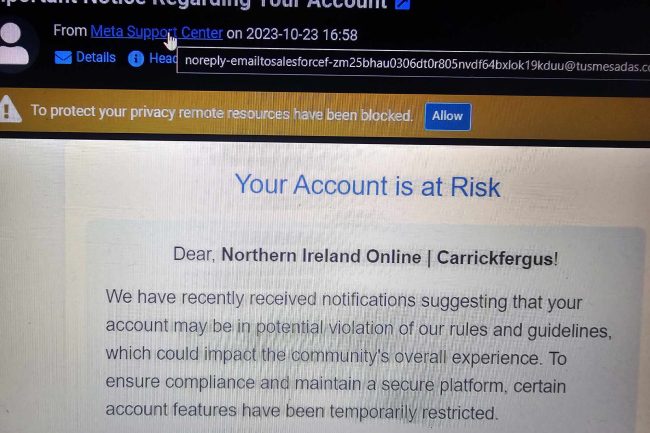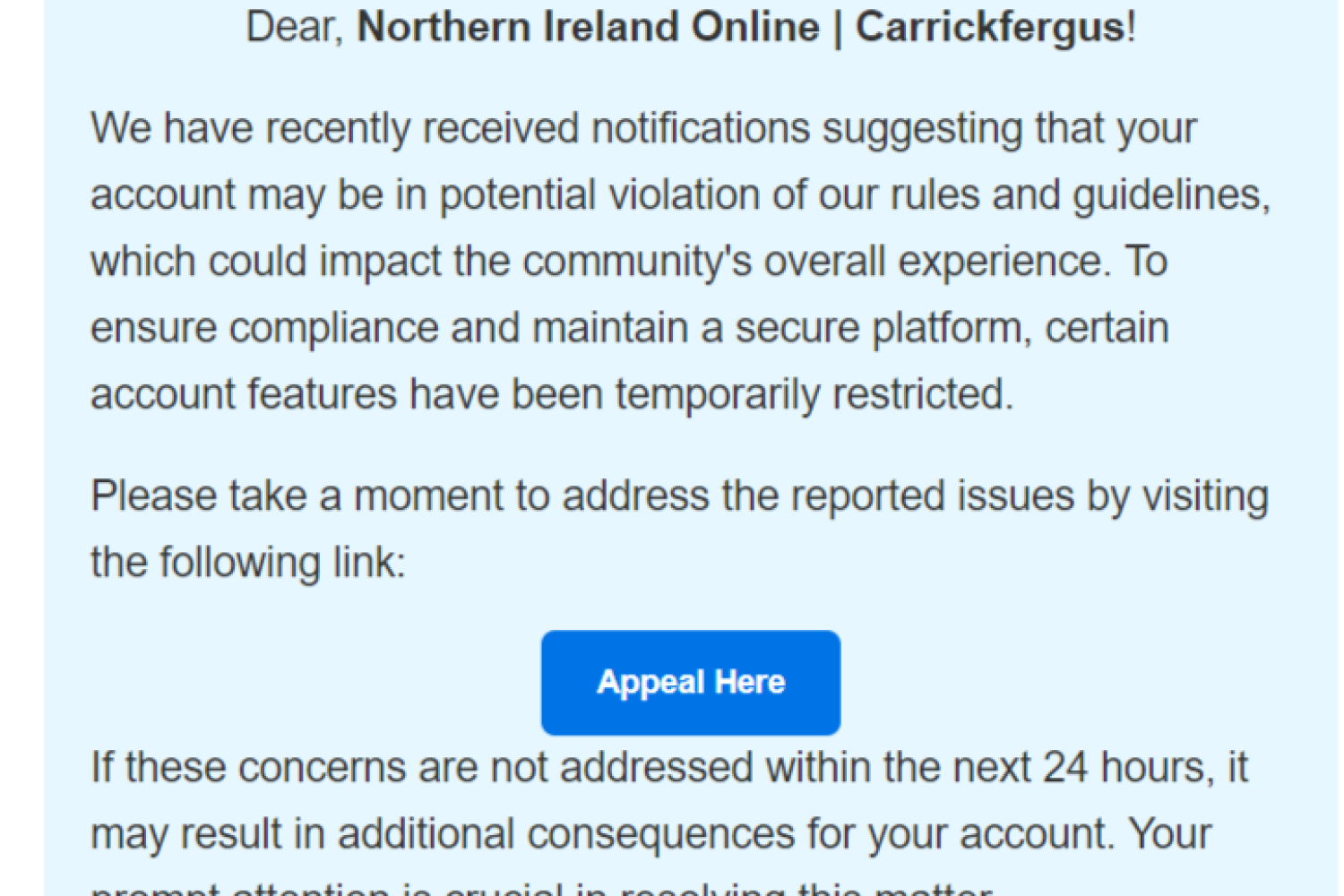We want to alert you to a growing threat: scam emails claiming that your Facebook page has violated our terms and conditions. These emails may appear convincingly as if they’re from Facebook, but they are actually attempts to deceive you. Your vigilance is crucial in keeping your account and personal information safe.
How to Spot the Scam:
1. Check the Sender’s Email Address: Legitimate emails from Facebook will come from addresses ending in “@facebook.com.” Be cautious of emails from addresses that look suspicious or have misspelt variations.
2. Look for Grammatical Errors: Scam emails often contain grammatical and spelling errors. These are telltale signs that something isn’t right.
3. Beware of Urgent Language: Scammers may use threatening or overly urgent language to pressure you into taking immediate action. Facebook typically communicates important matters professionally and without alarmist language.
4. Verify Links: Hover your mouse pointer over any links without clicking. Make sure the URL displayed matches “facebook.com” or an official Facebook subdomain. Do not click on unfamiliar or suspicious links.
5. Inspect the Email for Attachments: Facebook usually does not send unsolicited attachments. Do not open any unexpected attachments.
How to Deal with the Scam:
1. Do Not Respond: Do not reply to the email, click on any links, or download any attachments. Responding can confirm your email as active, making you a target for more scams.
2. Report It: Forward the suspicious email to Facebook at phish@fb.com. This will help Facebook take action against the scam and protect other users.
3. Change Your Password: As a precaution, change your Facebook password. Use a strong, unique password that includes a combination of letters, numbers, and special characters.
4. Enable Two-Factor Authentication (2FA): If you haven’t already, enable 2FA for an added layer of security. This will help protect your account even if your password is compromised.
5. Educate Yourself and Others: Share this information with your friends and family to help them recognize and avoid these scams.
Remember, Facebook takes the security of your account and personal information seriously. We will never ask you to share sensitive information via email. Be cautious, stay informed, and be proactive in protecting your online presence.
 Northern Ireland Online/Webpageni
Northern Ireland Online/Webpageni
Cybersecurity, EmailSafety, InternetSafety, NorthernIrelandOnline, OnlineSecurity, PhishingScams, ProtectYourAccount, ScamAwareness, ScamEmails, WebPageNI

 Northern Ireland Online/Webpageni
Northern Ireland Online/Webpageni

 Northern Ireland Online/Webpageni
Northern Ireland Online/Webpageni